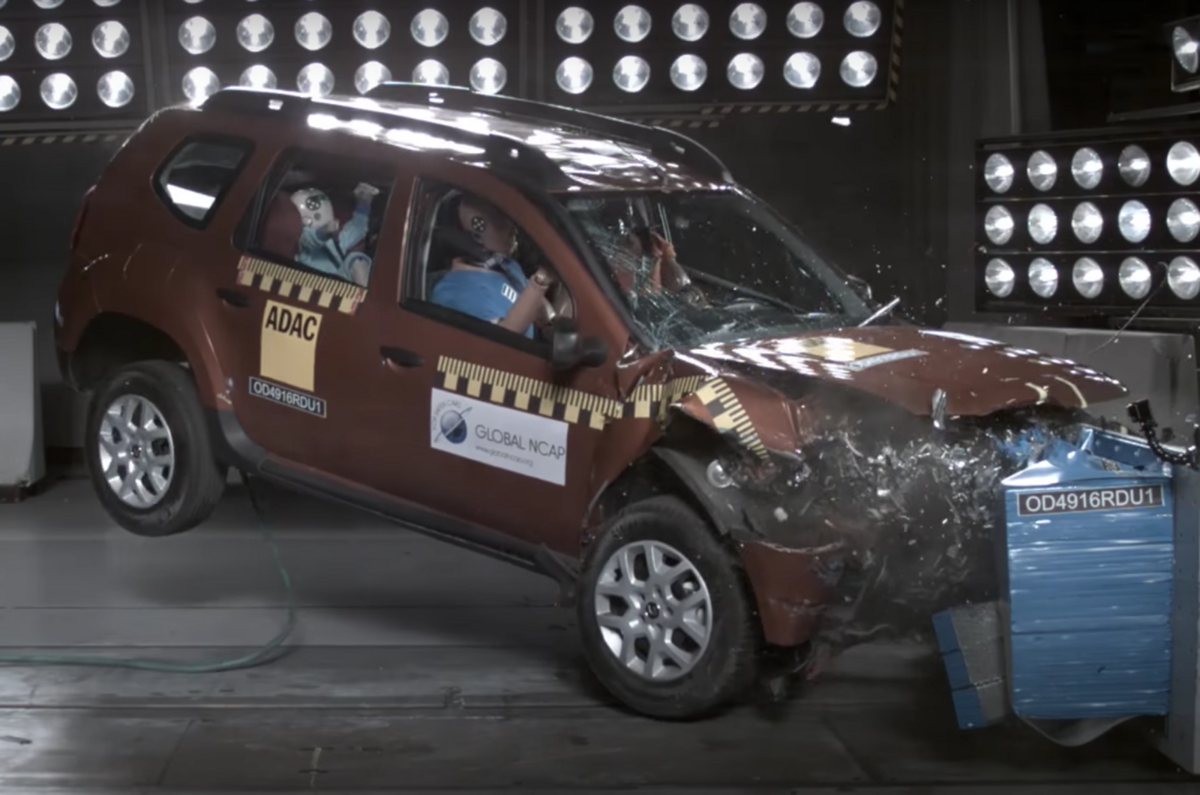The Indian-market Renault Dacia Duster has achieved a zero-star rating from Global NCAP, prompting concern from the organisation’s secretary general.
The Duster scored zero stars in standard form, and only three with airbags equipped. Renault was criticised by Global NCAP's David Ward for its differing standards of safety for different markets.
David Ward, secretary general of Global NCAP said: “It is troubling that during the UN Road Safety Week we yet again encounter a zero-star car in our crash testing in India. Renault produces the Duster in a number of markets and yet it seems content to provide a version for India that falls so far short on safety.”
Renault was also criticised for its three-star rated Duster; the airbag, despite being the only feature on the car maintaining its three-star rating, it was found to be a smaller than the airbag used on the South American-spec car; when Latin NCAP tested the Duster, it was rated four stars.
The smaller airbag, said NCAP, increased the risk of the driver’s head missing the airbag, or slipping off it and hitting the steering wheel.
It should be noted that this does not affect UK-spec Dacia Dusters.
It’s not the first time Renault has been criticised on the matter. Last yea,r the Kwid – one of Renault’s most successful models in India – was awarded a single star in its safest form, and zero stars in standard spec.
Global NCAP has set out a plan to eradicate zero-star cars from all markets by 2020, by establishing a basic crash structure and one airbag as the bare minimum of equipment required on a new car.
A Renault UK spokesman said: "Safety is of paramount importance for Renault and all of our vehicles meet or exceed the safety standards set by Indian Regulatory Authorities. India is continuing to increase safety standards and the Bharat NCAP is a positive step in that direction. Renault fully supports this initiative and we are prepared in terms of technology, design and engineering for enhanced safety for all our vehicles. The Indian government has announced that the crash test regulation for existing cars will come into effect in 2019 and for new cars in 2017. Renault fully supports this."
Read more:
4x4 heroes - the best off-roaders compared
Renault Kwid: around the globe in the world's cheapest car




Join the debate
Add your comment
Safety kit costs money, money
Blame the market
Shocking from RenaultNissan